Do you teach neurodivergent piano students? If not, you’re missing out on a wonderful and rewarding experience.
Do you teach neurodivergent piano students? If ‘yes’ – great! Keep doing what you’re doing, and please share your stories with us in the comments.
If no – why not? Maybe the chance hasn’t just presented itself to you. Perhaps you don’t feel prepared. Or maybe, like a post I’ve recently seen on Facebook, you’re not sure “if it’s worth it.”
Whatever your reason, keep reading. You’ll learn from firsthand accounts why welcoming neurodivergent piano students into your studio can be a life-changing experience for your student and for you.
Table Of Contents:
Why do you teach piano? Your first answer is probably something like…
Have you ever considered the following reason:
“I want to enhance the lives of neurodivergent children.”
If you haven’t thought of your teaching as a form of effective therapy that can transform the lives of neurodivergent students, then maybe it’s time you do.
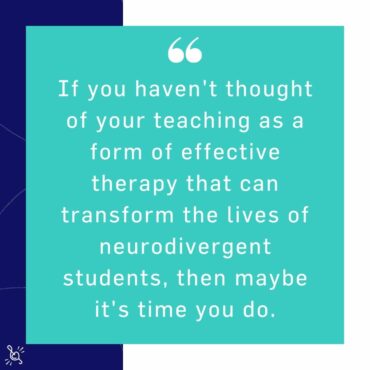
Did you know that research has shown that learning the piano has the following benefits:
The list is endless.
We’re not attempting to add or prove what researchers have already shown.
What we want to do is share experiences that demonstrate what playing the piano has done for students with disabilities.
The following stories come from Dima Tahboub. (First printed in the PianoBench mag, shared again with permission.)
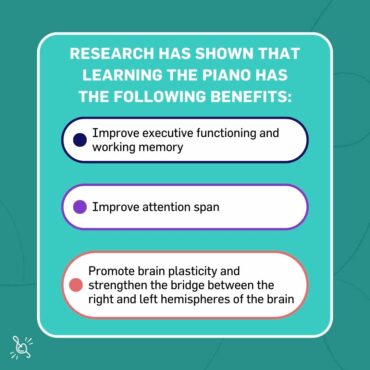
“Jack (not his real name) started lessons at age 9. He suffered from brain damage, which affected the left side of his body. He had very little control over his left arm, left leg, left eye, and all of his left side of the body.
Sitting straight on the piano stool alone with a straight back was a challenge, let alone playing piano with his left hand, which was an even greater challenge.
Only pressing one single note with one finger was way out of reach.
Fast forward…after only six months of piano lessons, Jack started showing measurable results:
Fast forward another six months, and Jack took his first ABRSM exam.
Not only did his piano skills improve, but also his ability to walk and sit straight.
His ability to move his left arm and left hand improved significantly.
He was able to join school after being previously home-schooled.”
Related: Working With Special Needs Students – One Teacher’s Perspective
“My students’ parents notice a big difference in their communication and language skills after only a few months of consistent lessons and practice.
One of my six-year-old parents commented,
Piano sessions developed my son’s talent and his passion for music, and at the same time, they were a therapy for his speech delay.
Mother of six-year-old, Khaled
Science backs this up and proves that the brain is plastic. New pathways and neurons are always forming in the brain.
The brain is actually able to change through life, especially whenever something new is being learned and memorized.
Previously, it was believed that with age, the connections in the brain become fixed. However, research has shown that the brain never stops changing through learning.
Playing the piano involves moving the ten fingers independently while reading and interpreting the sheet music at the same time. It is like performing a monster brain workout. Many new neurons form during this activity.
The new neurons and connections that form when playing piano are then used for functions other than playing the piano. Research actually proves that playing the piano improves language and communication as a result of these new connections.
Related: Special Needs Piano Teaching
“Andy (not his real name) is a 15-year-old boy on the spectrum with developmental delays.
He started piano lessons less than a year ago.
For years, he has gone through multiple forms of therapy, and his parents thought he reached a plateau… Until he started playing the piano.
His teachers are consistently becoming astonished at the progress he is making in his handwriting, which was previously illegible and huge.
Now, after less than a year of piano, Andy can write very clearly and neatly and at least is able to tie his shoelaces independently.
Imagine what would have happened had he started piano earlier!”
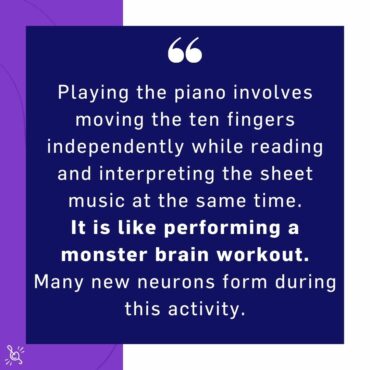
Playing the piano gives children a creative lifetime hobby.
It gives them an artistic way of expression.
Dina says,
“My neurodivergent students are always part of my recitals, and they love to participate. It’s a wonderful opportunity to make them feel included and welcome, especially since, in some other aspects of their lives, they may feel excluded and discriminated against.”
Participating in recitals and other social events involving piano makes neurodivergent students more likely to develop appropriate social and communication skills.
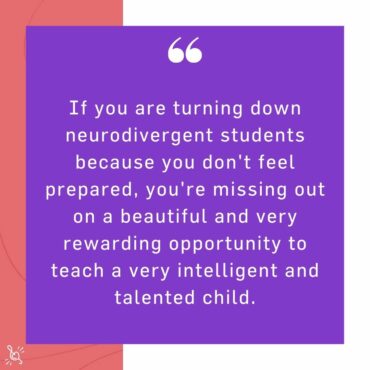
These are just a few examples of how transformative piano lessons can be.
It’s our duty as piano teachers to educate, spread the word, and share our experience with everyone to make sure that this form of therapy can become available to all children who need it. Join hands with centers and schools that cater to these children and explain what is witnessed on the piano bench over and over again.
Piano lessons can be an unexpected form of therapy that produces significant results in a relatively short time.
If you are turning down neurodivergent students because you don’t feel prepared, you’re missing out on a beautiful and very rewarding opportunity to teach a very intelligent and talented child.
TopMusic is lucky to have fantastic resources from experts within the music education industry to guide you and inspire you to teach neurodivergent piano students.
Within the TopMusicPro academy, we have the incredibly insightful course “Teaching Students with Special Needs” by Selena Pistoresi.
In February 2024, we’ll be releasing a brand-new course from Selena called, “Unfazed: Teaching Neurodivergent Students.”
These courses are exclusive to TopMusicPro members.
We hope we’ve inspired you to welcome neurodivergent piano students into your studio.
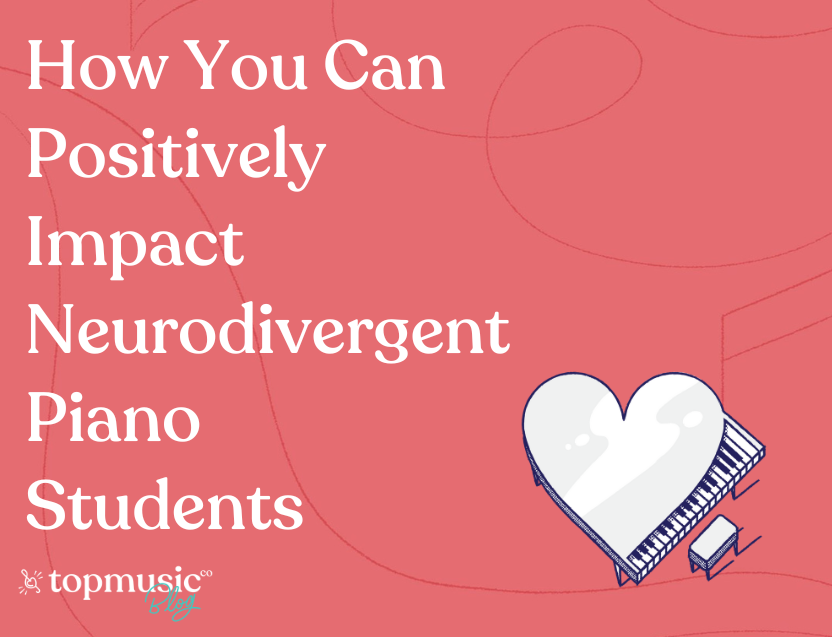
NUSAIBA says:
These insights have made a significant impact. tnx writer
landwey says:
The new neurons and connections that form when playing piano are then used for functions other than playing the piano. Research actually proves that playing the piano improves language and communication as a result of these new connections.